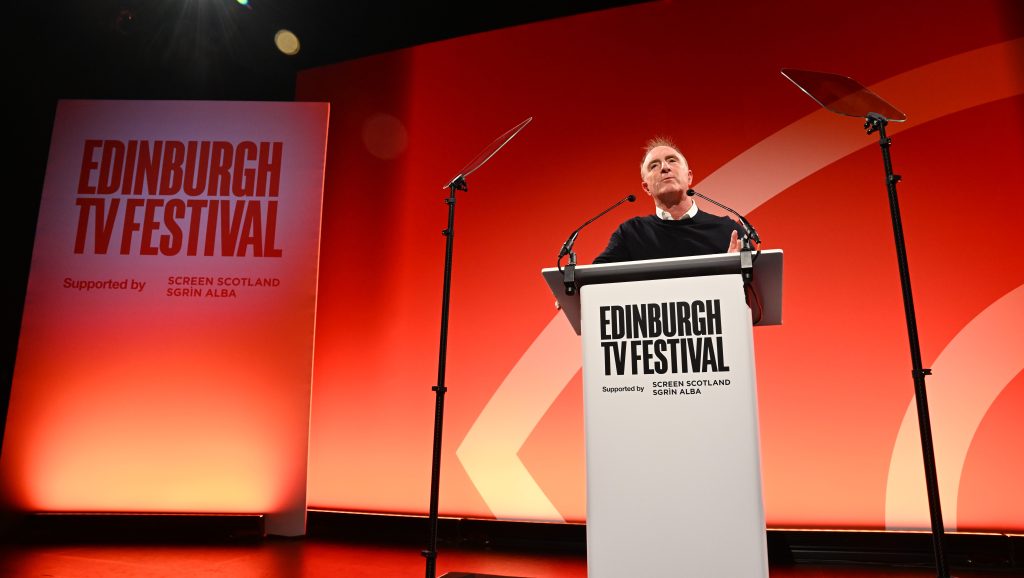James Harding, the former director of BBC News, has made an impassioned plea for the corporation to become more independent of government, thereby pivoting to being the “People’s Platform.”
As more and more questions are posed about BBC independence and with 2027 charter renewal on the horizon, Harding delivered a blueprint to “depoliticize the BBC” and “change how appointments are made and budgets are set.”
“The BBC chair and board of directors should be chosen, not by the Prime Minister, but by the board itself and then, like other such organisations, with the approval of [regulator] Ofcom,” said Harding. “The BBC will attract more and better people to apply for those jobs if they don’t feel like the appointment is a political stitch-up.”
Harding was delivering the annual MacTaggart lecture at the 50th Edinburgh TV Festival. He used to run BBC News and is now in charge of news outlets Tortoise and The Observer.
Harding swung in behind his former employer, the 100-year-old broadcaster.
“Political interference – and the perception of a political presence looming over the BBC – is a problem, one that we’ve got too accustomed to,” he added. “And it looks likely to get worse. We need to get on with putting the country’s most important editorial and creative organisation beyond the reach of politicians now.”
In this way, Harding said the BBC could “think of itself more as the People’s Platform” as well as a public service broadcaster, “one that’s home to more varied thinking but holds true to standards of truth and accuracy, diversity of opinion and fair treatment of people in the news.”
Resurrecting ex-BBC News presenter Emily Maitlis’ MacTaggart speech from three years ago, he flagged that a member of the BBC Board, Robbie Gibb, is a former spin doctor for ex-Conservative Prime Minister Theresa May and was “keenly involved in editorial oversight.”
“He still is,” added Harding of Gibb and his involvement with editorial.
Later, Harding introduced an idea that would help independent producers by posing that BBC current affairs shows should be made in some instances by third parties.
“Why can some editions of Panorama be made by independents, but no editions of Newsnight?,” he said. “It’s illogical, as if it’s somehow alright to open up a fraction of current affairs to independents, but hold the line on news. If the lesson of recent years is that it needs to head off accusations of narrowness in its agenda and its approach which are corrosive of public trust, then no BBC division needs openness more than news which, paradoxically, has the least of it.”
BBC is not “institutionally anti-semitic”
Elsewhere, Harding, who is “proudly” Jewish, used the platform to strenuously deny that the corporation is “institutionally anti-semitic.”
“It’s untrue to say it is,” he added. “It’s also unhelpful – much better to correct the mistakes and address the judgment calls that have been wrong, than smear the institution, impugn the character of all the people who work there and, potentially, undermine journalists in the field working in the most difficult and dangerous of conditions.”
He was speaking after a string of scandals related to the Israel-Gaza conflict that have hit the BBC including the Doctors Under Attack and How to Survive a Warzone documentary sagas.
Former Times of London editor Harding has been in the news this year primarily as the co-founder of Tortoise Media, a British news website that acquired The Observer newspaper from Guardian Media Group. Despite reservations from some quarters of the journalism and media world over the sale, Tortoise has pledged to invest millions in the Sunday paper, with Harding now the editor-in-chief.
Harding was closing out the second day of the Edinburgh TV Fest, the latest in a long line of MacTaggart lecturers including Kevin Spacey, Michaela Coel and three Murdochs.

